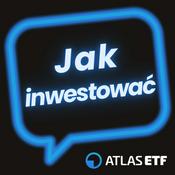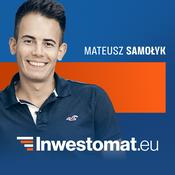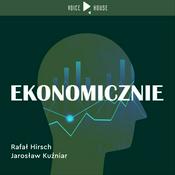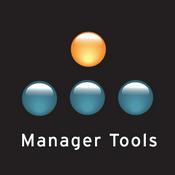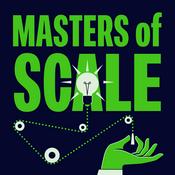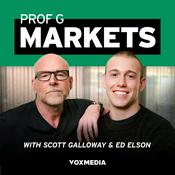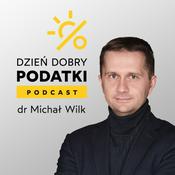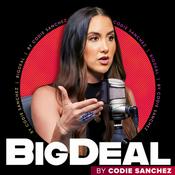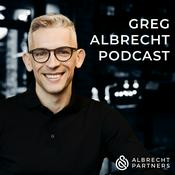1150 odcinków
- The accounting team at Looker showed up every day knowing their jobs might disappear within a year. The company was in limbo—acquired by Google but still waiting on European approval—so the deal hadn’t closed, integration hadn’t begun, and uncertainty hung over the office. Yet the team continued to deliver “absolutely excellent work,” taking pride in their craft even when the upside had faded, Razzak Jallow tells us.
That moment stayed with him. For Jallow, now CFO of FloQast, it crystallized a belief that professionalism and pride are not situational—they’re intrinsic. “We get to choose what we do,” he says, reflecting on how the team’s attitude revealed character when incentives were stripped away. It’s a lesson that echoes throughout his career, from Adobe’s subscription transition to Apple’s sales finance organization and into his first CFO role.
At FloQast, that mindset shows up in how he approaches scale. Early on, the work was about fixing what was directly controllable—the “low-hanging fruit,” as he puts it. Over time, the challenge shifted. As teams and systems matured, the hardest problems required multiple functions to change together, Jallow tells us. Speed gave way to coordination; individual fixes gave way to shared ownership.
The same discipline shapes how he thinks about growth. Efficient growth, in his view, starts with customer value, not the P&L. If teams are investing in the highest-ROI initiatives for customers, the financial results will follow—“maybe not in three months… but certainly long term,” he tells us.
Whether navigating acquisition limbo or platform expansion, Jallow’s throughline is clear: strategy is built on judgment, culture, and pride in the work—especially when no one is watching. 1157: From Deal Advisory to Operator: Learning the Hard Parts | Toby Driver, CFO, Ideagen
21.01.2026 | 58 min.At 18, while many of his peers were heading off to university, Toby Driver made a different choice. He joined an accounting practice through an apprenticeship, a decision driven by his desire for a “quick learning curve” and real exposure to business, he tells us. From the outset, he was less interested in credentials than in understanding how organizations actually work.
That instinct carried him through years in audit and into transaction services, where he learned to dissect businesses at speed. In deal advisory, Driver was tasked with getting “under the nuts and bolts” of companies, performing financial health checks with significant value at stake, he tells us. The work sharpened his ability to spot value drivers—but it also revealed a blind spot he wouldn’t fully appreciate until later.
That realization came after he moved into operations at Ideagen. Leading M&A integrations end-to-end meant sitting with the CEO and C-suite to align sales, product, technology, and culture. Bringing two organizations together was far more complex than it ever appeared from the advisory side, Driver tells us. The experience reshaped his mindset, pushing him to think “business first, rather than necessarily finance first.”
As Ideagen scaled from roughly £50 million in ARR to five times that size, Driver faced another inflection point. The company reorganized into regional operating units to restore accountability and clarity, a change finance helped design, he tells us. Today, he carries those lessons forward as CFO—focused on structure, transparency, and creating an environment where people surface issues early. “Bad news never gets better with time,” he says, a principle that now defines both his leadership style and his approach to scale.1156: From Turnaround CFO to Enterprise-Scale Strategist | Kevin Rubin, CFO, Zscaler
19.01.2026 | 48 min.When Kevin Rubin arrived at Zscaler in May 2025, he joined an established organization following the retirement of the company’s longtime CFO, taking responsibility for continuing the work of a finance leader who had already built a strong foundation. Rubin describes stepping into a business with scale, experienced leadership, and a customer base that included some of the world’s largest enterprises, he tells us.
In explaining what Zscaler does, Rubin walks through the company’s core idea: zero trust. Traditional cybersecurity, he says, relied on network-centric “castles and moats,” requiring large amounts of equipment to connect people, applications, and data. Zscaler challenged that model by treating the internet as a “superhighway” and applying a principle of minimal access. If an employee wants to use Salesforce or email, Rubin explains, the system first authenticates the user and then limits access to only what that person is authorized to see, he tells us.
Zscaler was founded in 2007 and went public in 2018, Rubin tells us. Today, roughly 40 percent of the Global 2000 and about 45 percent of the Fortune 500 use the company’s platform. Rubin attributes that adoption to a model that delivers security with less overhead and infrastructure than traditional approaches, he tells us. At its core, he says, cybersecurity comes down to two problems: stopping malicious activity from entering the network and preventing sensitive data from leaving it.
Reflecting on his first 100 days, Rubin says the transition was shaped by continuity and people. He describes a welcoming executive team and an organization already positioned for growth. Cybersecurity, he notes, remains a dynamic market, with new vulnerabilities constantly emerging, and staying ahead of those threats continues to define the work ahead, Rubin tells us.1155: Scaling Growth Without Sacrificing Outcomes | Bruce Schuman, CFO, Universal TechnicalInstitute
14.01.2026 | 51 min.At Intel, Bruce Schuman remembers walking into a meeting as a controller, proud of a product change his team had worked on “for months.” Then CFO Andy Bryant asked one question—one that reframed the proposal around customer impact. “Nobody had thought about (it),” Schuman tells us, and that question “completely changed the entire conversation,” leading to a “10 times better” outcome.
That moment captures why Schuman spent “two decades plus 27 years” at Intel, he tells us. Rotational roles pushed him into new challenges every few years, while leaders modeled what influence and partnership looked like in practice. Intel even had a term for it—“constructive confrontation,” Schuman tells us—encouraging finance leaders to put difficult issues on the table in service of better decisions.
When Schuman later moved into CFO roles outside Intel, he carried that mindset with him. FP&A, he says, should not simply “report the score of the game,” but act like “people on the field literally changing the outcome of the game,” Schuman tells us. That expectation shaped how he built finance teams and approached decision-making in smaller, faster-moving organizations.
Today, as CFO of Universal Technical Institute, Schuman applies those lessons to a mission-driven business focused on workforce development. UTI works with “about 35 OEM partners” and “about 6000 employer partners,” Schuman tells us, and measures success through “70% graduation rates” and “about 85% placement rates,” Schuman tells us. Growth remains disciplined: “We’ll never sacrifice student outcomes,” he tells us, even as the company plans to build “anywhere from two to five campuses a year for the next five years,” Schuman tells us.1154: When Finance Becomes the Company’s Storyteller | Drew Laxton, CFO, Outreach
11.01.2026 | 41 min.When Drew Laxton looks back on the past year at Outreach, one moment stands out—not a transaction, but a plan. The company set its annual targets, executed against them, and then exceeded expectations. “When you see green numbers at every quarterly all-hands,” Laxton tells us, “it’s amazing how that little bit of momentum just builds the company.” What surprised him most was the cultural impact: morale rose, confidence compounded, and belief followed performance.
That belief didn’t happen by accident. Laxton’s career has consistently positioned him at the intersection of numbers and narrative. He began in investment banking, where he learned early that finance only matters if people can retain the story behind it. “If you can’t tell the story, it just stays there,” he tells us. That mindset carried him from banking into operating roles, and later to Apptio, where he experienced nearly the full corporate lifecycle—from IPO preparation to public markets and eventually a private-equity take-private.
Serving as Chief of Staff during Apptio’s Vista ownership pushed him beyond traditional finance. The role, he explains, was about making sure the CEO “didn’t run into a locked door,” anticipating decisions and asking the questions leadership would need answered. That experience sharpened his instinct for alignment.
Today, as CFO of Outreach, Laxton applies those lessons through planning discipline, FP&A embedded in the business, and storytelling that connects strategy to execution. Finance, in his view, is not a back-office function—it is the force that helps people understand why the company is moving where it is going.
Więcej Biznes podcastów
Trendy w podcaście Biznes
O CFO THOUGHT LEADER
CFO THOUGHT LEADER is a podcast featuring firsthand accounts of finance leaders who are driving change within their organizations.
We share the career journey of our spotlighted CFO guest: What do they struggle with? How do they persevere? What makes them successful CFOs? CFO THOUGHT LEADER is all about inspiring finance professionals to take a leadership leap. We know that by hearing about the successes — (and yes, also the failures) — of others, today’s CFOs can more confidently chart their own leadership paths across the enterprise and take inspired action.
Strona internetowa podcastuSłuchaj CFO THOUGHT LEADER, The Diary Of A CEO with Steven Bartlett i wielu innych podcastów z całego świata dzięki aplikacji radio.pl
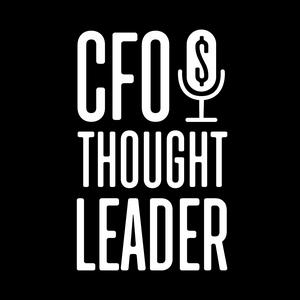
Uzyskaj bezpłatną aplikację radio.pl
- Stacje i podcasty do zakładek
- Strumieniuj przez Wi-Fi lub Bluetooth
- Obsługuje Carplay & Android Auto
- Jeszcze więcej funkcjonalności
Uzyskaj bezpłatną aplikację radio.pl
- Stacje i podcasty do zakładek
- Strumieniuj przez Wi-Fi lub Bluetooth
- Obsługuje Carplay & Android Auto
- Jeszcze więcej funkcjonalności


CFO THOUGHT LEADER
Zeskanuj kod,
pobierz aplikację,
zacznij słuchać.
pobierz aplikację,
zacznij słuchać.




